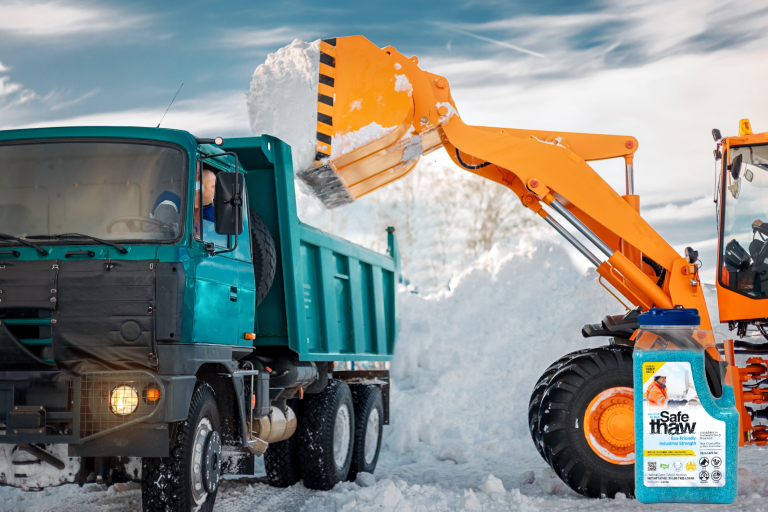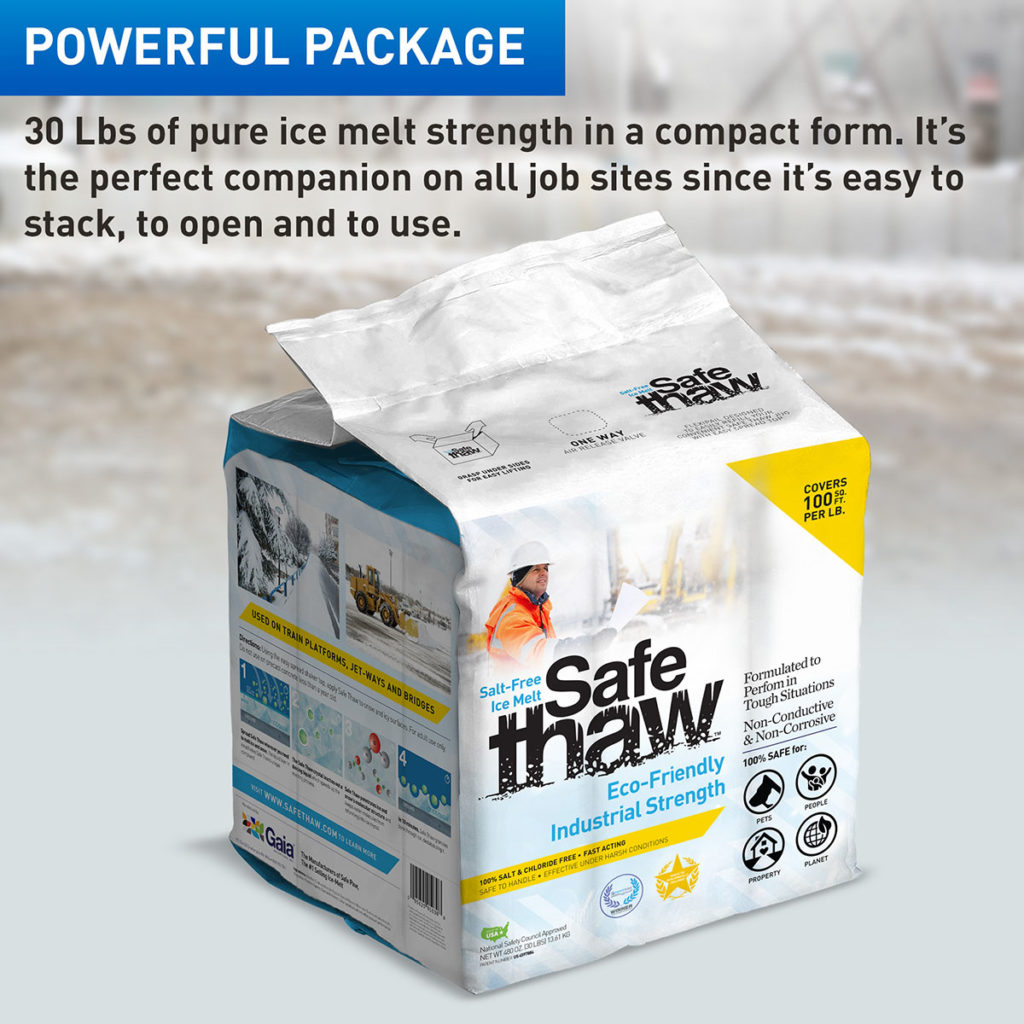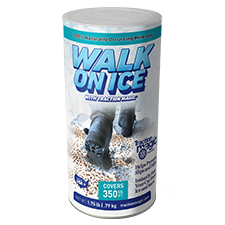Why New Driveways Are More Susceptible To Salt Damage

Driving on a new concrete driveway is a wonderful feeling, but the reality is that salt can damage your new driveway and make it look old before its time. If you’ve just installed a new concrete parking lot or entranceway, and are wondering what is the safest ice melt to use on concrete, this article is for you.

Safe Thaw
Safe Thaw was created as the ice management solution for tough winter environments. Ideal in commercial and industrial properties, shops, government agencies, bridges, and construction.
Salt Is Hygroscopic, Which Means That It Attracts Water. Water Is One Of The Primary Elements Required For Rusting To Occur.
Salt is used to melt ice and snow on the roadways. Salt is hygroscopic, meaning it attracts water. The combination of salt and water (in either liquid or solid form) causes concrete to corrode steel reinforcement elements within it under certain conditions.
The most common type of salt used in the United States is sodium chloride (table salt). To understand why new driveways are more susceptible to damage from salt, it’s important to know how much pressure your driveway can withstand without cracking or breaking apart.
When Steel Rebar Starts To Rust, It Expands And Pushes On Surrounding Material. This Causes Cracks And Holes In The Surface Of The Asphalt/Concrete That Was Covering It.
When moisture gets into these materials, they start rusting and expanding as a result of this oxidation process called corrosion. This expansion can cause cracks in the surrounding materials like asphalt/concrete that were covering it up or supporting its weight; which leads us back to our first point about how new driveways are more susceptible than older ones because they don’t have any protective layers yet! This makes those cracks even easier targets for infiltration by salting agents during winter months when snow melts into puddles on top of your driveway before being swept away by rainwater runoff during springtime storms (and this happens every year in Southern California!).
What Is The Safest Ice Melt To Use On Concrete
Safe Thaw is a great natural ingredient product that is 100% safe for the environment, landscape, and cars! Now, that’s cool. Safe Thaw has a patented urea-modified formula that does not scratch the windshield or erode the surface, making it a preferred choice for several homeowners. It comprises unique glycols and special surfactants that are gentle on any surface, including asphalt, concrete, and glass. Now you know what is the best way to melt ice.
100% salt & chloride-free, fast acting Ice Management Solution
Conclusion
You know what is the safest ice melt to use on concrete. The bottom line is that salt can damage new concrete driveways by corroding metal reinforcement elements within them under certain conditions. If you’re going to have a new driveway installed, take the time to make sure that it’s properly sealed. A good sealant will keep water from getting into your driveway and causing rusting problems with steel rebar.
Try Also Our Other Winter Safety Products:
Safe Paw
The Original and #1 Selling Pet and Child Safe Ice Melt for over 20 years. Guaranteed environmentally safe –It won’t harm animals or children, and it won’t damage your property. That’s Safe Paw. Safe Paw can change how winter affects our planet.

Walk On Ice
The handy disposable canister can be taken everywhere, with the same 100% naturally occurring minerals that provide instant traction on ice or snow. Use it on sidewalks, steps, or as an instant traction agent for your car.



